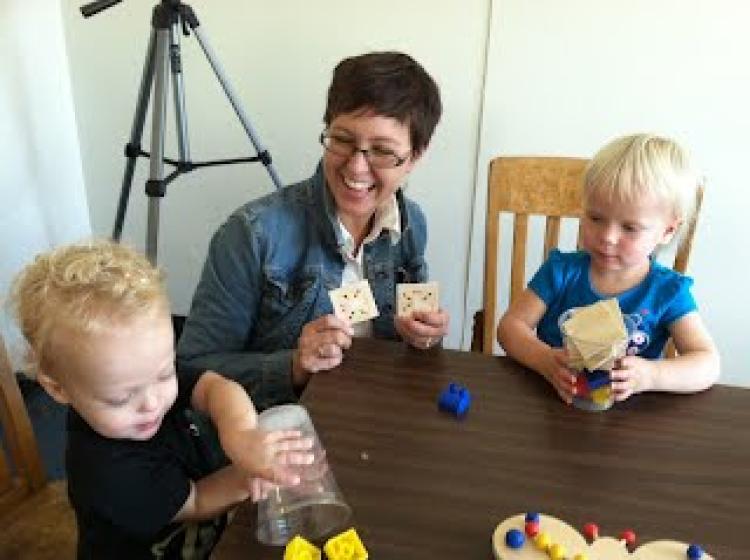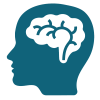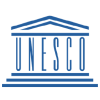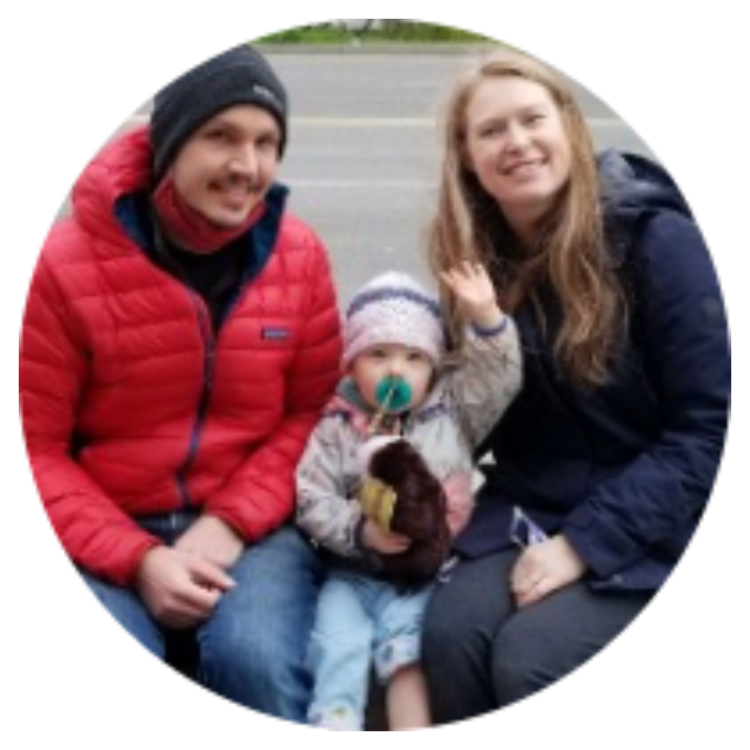Language and Cognition Undergraduate Track

The study of linguistic cognition takes you into the heart of the mind. Cognitive linguists examine the language that we use to tell stories, describe feelings and sensory experiences, collaborate with each other and convey our beliefs for clues about the organization of human conceptual systems, our capacity for inference and the remarkably flexible ways in which we understand and communicate our experiences. For example, we can talk about love as a journey, a bond, a container, a force, a vehicle or a patient in need of medical help. These metaphors are not merely rhetorical flourishes--they’re reasoning tools that we use to make abstract concepts like love, life, emotion, ideation, communication, time, causation and purpose concrete. Cognitive linguists study the way meanings change over time, how our visual perception of words and our auditory perception of speech sounds is influenced by expectation and context, how children learn the meanings of words and grammatical patterns as rapidly as they do, how conceptual differences among communities of practice affect judgment and decision making, what happens in the brain as we produce and understand language and how we understand the actions and intentions of others through mental simulation. The study of linguistic cognition combines tools from computer science, cognitive psychology, semantic theory, philosophy of action and neuroscience to connect human reasoning and empathy to the human imagination.

Companies
With an understanding of the properties of mind that language reveals, cognitive linguists can better understand how disinformation spreads, the way juries reach consensus, how political propaganda works on its audience, how the design of children’s learning and testing materials can be improved, how trauma and brain injury affects attention and memory, and how to make instructions and human-machine interfaces more intuitive.
Cognitive linguists and cognitive scientists more generally are employed as technical writers, marketers, developers of educational materials, game designers, software localizers, user interface designers, political consultants, mediators, and neurological clinicians. Those who choose graduate study after the BA, can specialize in artificial intelligence, marketing/branding, neuroscience of language, behavioral science, medicine, child development, robotics or user interface design.
Profiles in Cognitive Linguistics: CU Linguistics Graduates
Linguistics is a great tool to address issues we all personally care about, but by far the greatest impact can be had by leveraging computers to help us get the data we all need to do proper linguistic analysis. We can also automate some linguistic tasks to make up for limited exposure and interest in solving the issues of smaller, marginalized communities.

Language and Cognition

CU is one of the few universities that offers the opportunity to pair the study of linguistic meaning with the study of mind and brain. Students who pursue the Language and Cognition track can pair it with the undergraduate certificate in Cognitive Science and participate in the research activities of CU’s world-class Institute of Cognitive Science. You can even study the relationship between language and neural architecture by combining the Language and Cognition track with an undergraduate neuroscience certificate.
How The Tracks Work
All Linguistics Majors are required to take 4 courses (Introduction to Linguistics, Sound Structures, Semantics, and Morphology and Syntax). There’s an additional requirement of five credit hours in a language other than English at the 3000 level or above. The four tracks are a formalization of the additional elective credit hour choices that will prepare students for employment or further education in a specific discipline of linguistics. For students on the Language and Cognition track, 12 of these elective credits should come from the set of cognitively oriented courses below.
The track also functions as a certification in this discipline and the student’s transcript will reflect this.
Language and Cognition Track Courses
Linguistic Meaning
LING/CLAS 1010
The Study of Words
LING 3185
Figurative Language
PHIL 2440
Symbolic Logic
Psycholinguistics and Language Development
LING 3005
Cognitive Science
LING 4100
Perspectives on Language: Language and Embodiment
LING 4220
Language and Mind
LING/SLHS 4560
Language Development
LING 4225
Interdisciplinary Research Methods in Child Language Acquistion
Modeling Linguistic Meaning
LING 1200
LING 4622
Statistical Analysis for Linguistics
LING 4632
Machine Learning & Linguistics
Undergraduate Program Opportunities
Minor in Computer Science
The track includes several courses in the Computer Science Minor. Finishing the minor can better prepare you for jobs in telecommunications, information processing, and data retrieval, or put you on the road to a Master's in Computer Science.
Minor in Information Science
The track includes several courses for the Information Science Minor. Finishing the minor will better prepare you for positions in data analytics and information processing with an NLP bent.
Minor in Data Science
The track includes several courses for the Data Science Minor. Explicitly designed to complement many different majors, the minor provides a more focused path to positions in data analytics than an Information Science Minor.
The Cognitive Science Certificate
The Cognitive Science Certificate requires only three additional courses. The addition of a perspective from psychology will better prepare you for toles in medical analysis, education, and multimedia.









